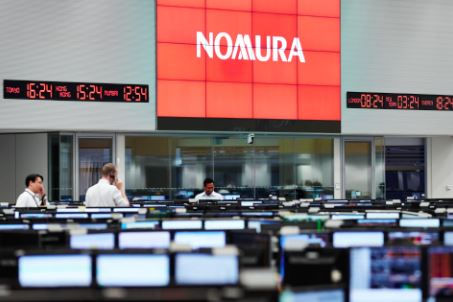Following pressure from US tariffs on Venezuelan crude, oil records its third weekly gain; in March, Brent and WTI both rose 6-7%.
- Money Bhai

- Mar 29, 2025
- 2 min read
Oil prices rose for a third straight week after Washington increased pressure on OPEC members Venezuela and Iran, but they dipped on Friday due to concerns that U.S. tariff disputes could cause a worldwide recession.
The price of Brent crude futures dropped 40 cents, or 0.5%, to $73.63 per barrel. West Texas Intermediate crude futures (WTI) closed at $69.36 a barrel, down 56 cents, or 0.8%. On April 2, U.S. President Donald Trump intends to declare retaliatory tariffs that will target a variety of products.
Analysts at JPMorgan informed clients that investors are concerned about a possible recession as a result of the trade conflict.
"Concerns about a trade war, coupled with elevated U.S. policy uncertainty, are weighing heavily on sentiment," they stated. According to JPMorgan, high-frequency oil demand indicators have so far held up fairly well, despite the higher probability of a recession. In contrast to economists' predictions for a 956,000-barrel draw in a Reuters poll, U.S. oil stockpiles dropped 3.3 million barrels to 433.6 million barrels last week, according to midweek data from the Energy Information Administration.
WTI increased 1.6% while Brent futures gained 1.9% on a weekly basis. Brent has risen more than 7% and WTI has recovered more than 6% since plunging to multi-month lows in early March. "The Trump administration increasing pressure on the Maduro regime in Venezuela was the main theme this week," according to Amarpreet Singh, an analyst at Barclays.
Days after the United States imposed penalties on China's imports from Iran, Trump announced new 25% tariffs on prospective buyers of Venezuelan crude on Monday. According to Singh, the actions might worsen a predicted 200,000 barrel per day drop in Venezuelan crude oil production this year.
Buyers' uncertainty has increased, and trade in Venezuelan oil to China, the country's largest client, has stalled. According to other sources, Reliance Industries, an Indian company that owns the largest refining plant in the world, would stop importing oil from Venezuela.
U.S. sanctions against Iran and Venezuela, after Trump pledged to cut the latter's oil shipments to zero, are causing oil markets to reevaluate expectations for world supply. Since Trump's return to the White House, the United States has targeted Iran's oil sales with four rounds of sanctions.
According to StoneX analyst Alex Hodes, the second quarter should be more competitive than anticipated. "If there are reductions in Venezuelan or Iranian crude oil barrels on the market this would certainly be a bullish development." In April, the OPEC+ group is scheduled to start its monthly oil output increase program. According to a Monday Reuters story, the organization, which is made up of OPEC and allies led by Russia, is expected to keep increasing oil production in May.








Comments